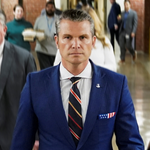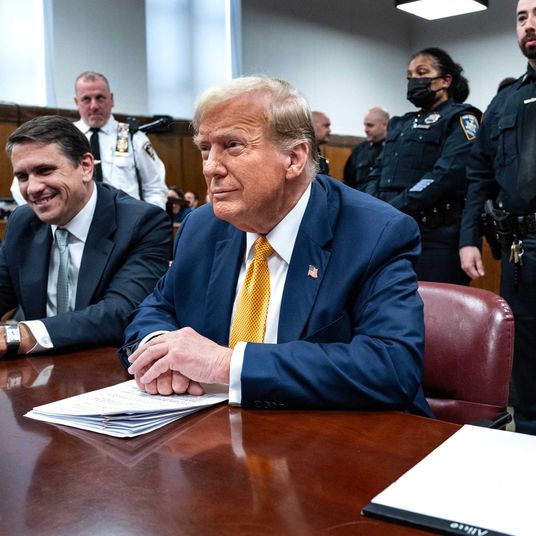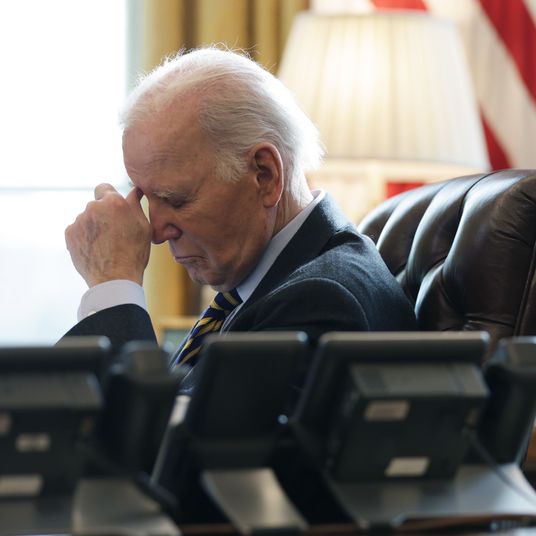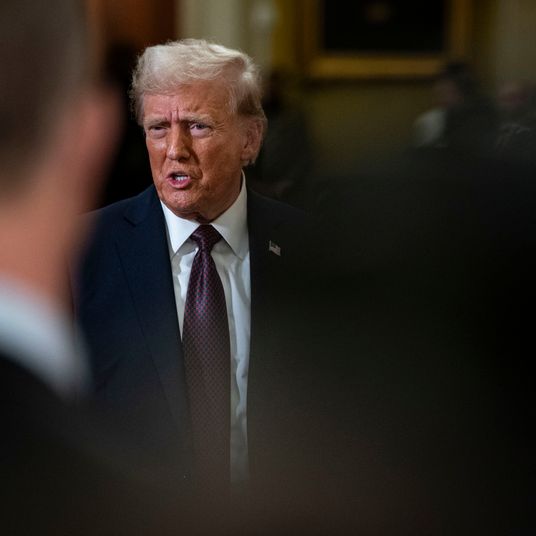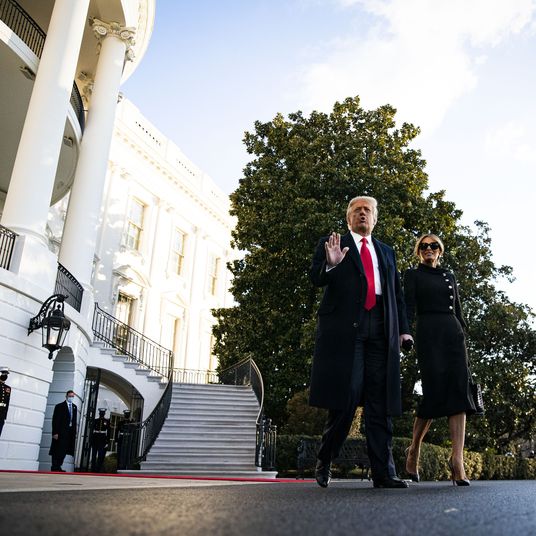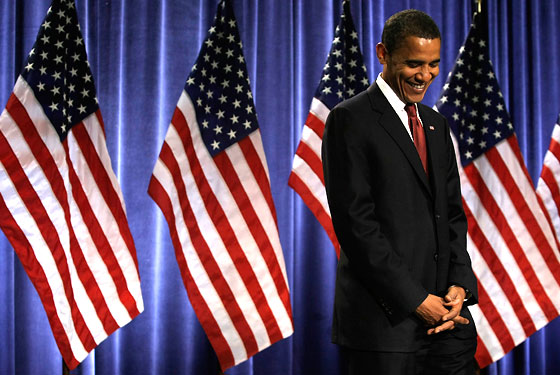
Getty Images
One of Barack Obama’s main objectives as he charms the globe into submission tours Europe and the Middle East next week will be to narrow the gap between himself and John McCain on foreign-policy credibility. But, of course, Obama’s been working toward that end at home, too. According to the New York Times’ report today on Obama’s vast foreign-policy advising apparatus, there are actually very few people who aren’t advising him on this stuff. (Well, there are 300 helping out.) Some wonder whether a presidential candidate should really need this much help.
• Elisabeth Bumiller has the scoop on the “huge 300-person foreign-policy campaign bureaucracy, organized like a mini State Department.” Advisers are organized into groups based on their areas of expertise and each day send “hundreds of e-mail messages and reams of position papers and talking points…to members of the core group,” who then send Obama an e-mail on world developments with anticipated questions and suggested answers. Most of the core advisers opposed the Iraq war and “tend to be more liberal and to emphasize using the ‘soft power’ of diplomacy and economic aid.” [NYT]
• Marc Ambinder says that the McCain response is that “John McCain doesn’t need daily talking points,” though “McCain is also very clearly learning as he is going, too.” Ambinder wonders whether the advising system Obama is using “will work in the Oval Office.” [Atlantic]
• Jennifer Rubin wonders where these 300 advisers have been during Obama’s foreign-policy mistakes, like calling for an undivided Jerusalem and not meeting with General Petraeus. It’s possible that “this unwieldy and bloated operation is utterly ineffective and doesn’t prevent or catch errors.” Or perhaps they simply exist to “provide the patina of national-security expertise when, in fact, the major foreign-policy objectives are really driven by domestic ideology.” [Contentions/Commentary]
• Matthew Yglesias points out that while McCain doesn’t have daily talking points, it doesn’t mean “he can talk about national-security issues with fluency and skill without them.” In fact, “he’s made a ton of gaffes, just as you would expect from an underprepared candidate.” McCain is allowed to get away with them because, to the press, “his years in captivity decades ago are adequate demonstration that he understands national-security issues, even though there’s no real basis for that view.” It’s “doubly frustrating” that McCain would then brag that he doesn’t need assistance on foreign policy. [Atlantic]
• Noam Scheiber takes special note of Colin Powell being named as someone who gives Obama “outside advice.” Scheiber still doesn’t think Powell will endorse Obama, but “it’s certainly savvy of Obama to put him in play, so to speak.” It “would be a big deal if he got” the endorsement. [Stump/TNR]
• Vaughn Ververs, meanwhile, notes that the “fact that the campaign appears to feel the need to bolster his foreign-policy credentials with the trip highlights just how little time [he] has been in the arena.” Obama is “taking precious time out of his campaign” to “innoculate himself” against claims that he’s not ready to handle our dangerous world. [Horserace/CBS News]
• John Dickerson likewise writes that Obama leads McCain on every issue except national security, on which he “trails badly.” Next week’s trip abroad will, if it works out as the campaign hopes, “address his key weakness, perhaps permanently.” [Slate]
• Steve Clemons writes that European leaders will try to discern whether Obama has “deep insights into the evolving tectonic realities of great-state competition” and if he has plans to address them. One worrying aspect of Obama’s trip is that he’s skipping Brussels, “the capital of Europe,” which could “amplify doubt about him and his strategic template.” [Washington Note] —Dan Amira
For a complete and regularly updated guide to presidential candidates Barack Obama and John McCain — from First Love to Most Embarrassing Gaffe — read the 2008 Electopedia.


